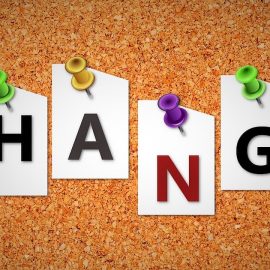
What are the benefits of letting go of unhelpful emotions? How are these negative feelings destroying your relationships?
David R. Hawkins cites that there are tangible benefits you can experience if you release unhelpful emotions. These benefits will rid you of self-imposed limitations, improve your relationships, and protect your health.
Continue reading for more information about these life-changing benefits.
Benefit #1: Ridding You of Self-Imposed Limitations
According to Hawkins, the first benefit of letting go of negative emotions rids you of the limiting thoughts and beliefs that accompany them. Our thoughts are rationalizations of our feelings—therefore, if your feelings are always stuck in a negative state, your thoughts will reflect a pessimistic outlook. When you’re no longer mired in negative thoughts and feelings, you learn that nothing can stop you from doing anything you want. You can be brave and bold instead of fearful and inhibited.
For example, say you’ve always wanted to run a marathon, but you convinced yourself you’d never be in good enough shape. You don’t want to completely give up, though, so you practice releasing the fear of failure that drives these unhelpful thoughts. Once you’ve successfully released your fear, you realize that nothing is stopping you from pursuing your dream. You start training and exercising every day, and you sign up for a marathon that’s a year from now. You know that when the time comes, you’ll be able to do it.
(Shortform note: In Designing the Mind, Ryan A. Bush offers a different perspective on the relationship between thoughts and emotions. He argues that emotions originate from thoughts, not the other way around. Between every stimulus and emotional response, there’s a thought pattern provoking that feeling. If you’re satisfied with the outcome of a situation, you’ll experience positive emotions. If you don’t get what you want, you’ll feel negative emotions. To change your feelings and behaviors, you must first change your faulty thought patterns and underlying beliefs.)
Benefit #2: Improving Your Relationships
Hawkins argues that releasing unhelpful emotions can also improve your relationships. As we’ve discussed, this is because your emotions affect the people around you, regardless of whether you consciously express them. Therefore, the things you feel about another person affect how they feel about you. To avoid negatively influencing someone’s feelings toward you, you must release the emotions that might invite that person’s negative energy.
(Shortform note: There’s scientific support for Hawkins’s idea that you can unconsciously influence the emotions of the people around you. The psychological phenomenon of unconsciously influencing and being influenced by others’ emotions is called emotional contagion. Emotions can spread through tone of voice, body language, and facial expressions. Support for the idea of emotional contagion came from studies of the responses of participants who observed someone else’s facial expression. After observing, participants had an emotional response that mirrored the emotion shown in the other person’s facial expression.)
For instance, pride is a common unhelpful emotion that can hurt relationships. When you’re prideful—feeling like you always have to be perfect, or like you’re superior to others—it’s often because you have an unconscious desire to gain others’ respect and approval. Instead of getting the respect and admiration you desire, however, you most likely get jealousy and competitiveness from others in return. When you can release your pride, you recognize that you don’t need the approval of others to feel worthy, and others will naturally come to appreciate and respect you when you respect yourself.
(Shortform note: Instead of holding on to pride, which is based on external praise and accomplishments, try to cultivate a feeling of dignity. According to some experts, dignity is a feeling of self-compassion and humility that’s separate from external successes and failures. It’s not dependent on any specific outcome—when you embody dignity, you don’t feel the need to be perfect, and you no longer compare yourself to others. Likewise, forgoing pride teaches that all humans deserve to feel dignity, regardless of their strengths and weaknesses.)
Benefit #3: Reducing Your Vulnerability to Health Issues
Finally, Hawkins asserts that releasing negative emotions can protect you from diseases and other health issues. He argues that beliefs take form in the physical body, and you’re only as vulnerable to health problems as you believe you are.
(Shortform note: Though there’s little research supporting the idea that getting sick is entirely related to our emotional state, there’s abundant evidence to suggest that many health conditions are related to emotional stress. For instance, chronic stress can suppress your immune system, leaving you more vulnerable to viruses such as the common cold. Additionally, stress can cause flare-ups of existing health conditions, such as irritable bowel syndrome.)
According to Hawkins, your beliefs determine your physical health because emotions, thoughts, and beliefs have energy, and the more we focus on them, the more likely they are to appear as physical symptoms. If you perceive the world as full of danger and disease, then you’ll get sick more often.
For example, if you’re constantly afraid that you have cancer, then every ache and pain you feel will be magnified as you attribute it to that fear. You’ll frequently feel physically ill because you’re already convinced that you’re going to get sick, and you’re giving your stress enough energy that it appears in your body the way you think it will. However, if you let go of your fear and anxiety, you’ll likely find that your health issues begin to disappear.
(Shortform note: In The Mindbody Prescription, John E. Sarno offers a different explanation for why emotions manifest in the body. He argues that the mind chooses to express emotional distress through physical symptoms because physical conditions are more socially acceptable. As diagnoses for a physical condition increase, doctors treat it as more “real,” which validates it as a socially acceptable condition. This is why chronic pain diagnoses change over time according to what’s popular (despite the root cause being emotional distress).)






